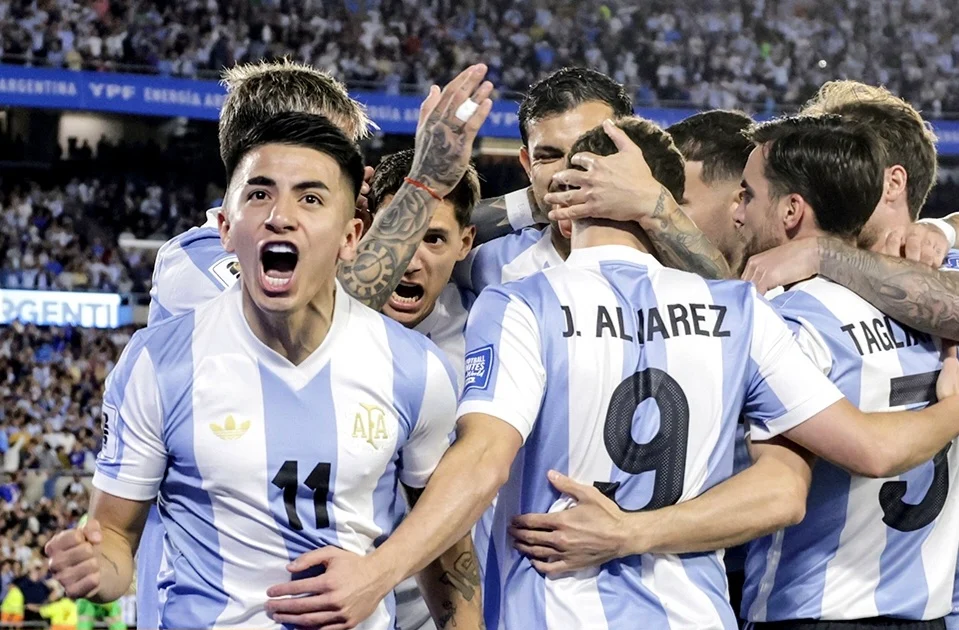Brazil Suffers Historic Defeat to Argentina: The Numbers Behind the Collapse
The Monumental witnessed one of the most bitter nights in Brazilian football history. The 4-1 defeat to Argentina wasn’t just a setback—it was an earthquake that shook the very foundations of the Seleção. The cold, hard numbers tell a story of humiliation: never before had Brazil lost by three goals in World Cup qualifiers, nor suffered such a heavy defeat to a South American rival this century.

From the first whistle, Scaloni’s side dictated play. Two uninterrupted minutes of possession football set the tone for what was to come. In the 4th minute, Julián Álvarez opened the scoring with a nutmeg on goalkeeper Bento, exposing Brazil’s defensive frailties. Enzo Fernández doubled the lead by the 12th minute, and Mac Allister added a third before halftime—a veritable exhibition of Argentine dominance.
Matheus Cunha’s consolation goal merely papered over the tactical chasm between the sides. While Argentina circulated the ball with five midfielders, Brazil looked lost on the pitch, repeating mistakes and offering no response to their rivals’ superiority. Simeone’s second-half introduction nearly compounded the embarrassment, with the woodwork sparing Brazil from a 5-1 rout.
Behind the scenes, criticism of manager Dorival Júnior has been scathing. His stubborn insistence on a system without a creative midfielder and four forwards left the midfield wide open—an expressway for Argentine attacks. Not even his substitutions brought change, as the coach watched impassively through 90 minutes of tactical shipwreck.
Comparisons to the 7-1 Germany defeat came naturally. While that trauma occurred in a World Cup, this humiliation happened at home, against their greatest rivals, to an Argentine side many consider weaker than past generations.
The post-match atmosphere was funereal. On social media, #DorivalOut trended as the Brazilian FA (CBF) reportedly explores alternatives for the managerial position. The next challenge—against Ecuador in Quito—looms as a true test of what little morale remains in the Seleção camp.
This wasn’t just a defeat. It was a red alert for Brazilian football—a sign that old methods no longer work and that, without profound changes, darker days may lie ahead. The lingering question remains: how much more must Brazil suffer before real change comes?
(Key British English adaptations: “nutmeg” instead of “tunnel”, “woodwork” for “trave”, “manager” rather than “head coach”, and naturalised phrasing like “football” instead of “soccer”)


